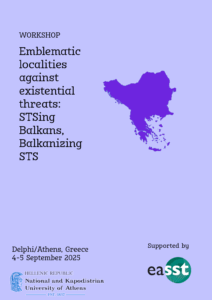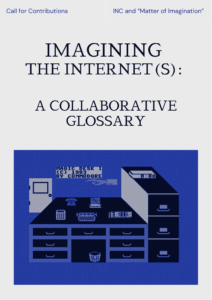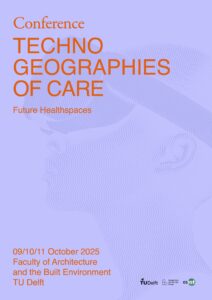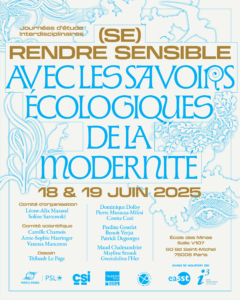EASST Fund aims to promote national and cross-national community building within EASST, advance new questions, topics and perspectives in science and technology studies, as well as enable collaboration with non-academic actors publicly engaged in science and technology.
EASST wishes to support a range of activities such as the organisation of conferences, network meetings, seminars, workshops, etc. These can be either online or in-person or a combination of both.
We welcome network and community-building activities organised by, or leading to, the creation of national and regional academic associations or other academic and non-academic initiatives committed to the promotion of scholarly and public engagements with science and technology in the European region. Examples of activities supported in previous rounds: STS Austria launch event in Vienna, Spanish STS network (RedesCTS), Technosciences of Post/Socialism conference in Budapest, Mattering Press open-access STS publishing initiative, and Irish STS community.
We similarly encourage the organisation of workshops and small conferences within Europe with the potential of making significant theoretical and/or empirical contributions to the field. Examples of supported activities from previous rounds: Rumos Autumn school and conference, Portuguese STS Association; Ethnographies of Outer Space Seminar, Jagiellonian University, Poland; Leakage Inaugural Conference, STSing, TU Dresden, Germany.
EASST especially invites applications from parts of Europe where EASST activities and membership are under-represented (Southern and Eastern Europe). We offer up to a maximum of €3000 per each successful application.
The proposed activities can be fully or partially funded by EASST. There are no quotas for the announced support categories.
There is one open call per year which runs throughout the autumn, which is announced here and via Eurograd and social media. The deadline will be 31 December 2025.
Applications
-
- Applications should only be submitted by EASST members.
-
- Applications should specify the category applied for and include a description of the proposed activity, addressing the criteria below. They should also include the proposed venue, date, organisers and expected number and profile of participants (when applicable) along with a budget specifying how the funds requested will be allocated.
-
- Applications must be made using this online application form. (Currently closed)
The key considerations in assessing the applications are the following:
- Community building on the national and cross-national level, and reaching to a European audience
- Particular emphasis is given to novel network initiatives, especially in countries underrepresented in EASST (Southern and Eastern Europe)
- Novel academic questions, new collaborations, and reaching beyond academia.
- Innovative initiatives in academia (e.g., open access publishing) and public engagement in science and technology.
- Open activities accessible for a wide array of participants and reaching a broad audience.
- Feasibility and value-for-money. We particularly welcome initiatives with limited access to other potential sources of funding.
- Andrea Núñez Casal, Department of Science, Technology and Society, Institute of Philosophy, Spanish National Research Council (IFS-CSIC)
- Assunta Viteritti, The Sapienza University of Rome
- Richard Tutton, Science and Technology Studies Unit, University of York, UK
If you have any questions about the EASST Fund please contact Andrea Núñez Casal at andrea.casal(at)cchs.csic.es.




